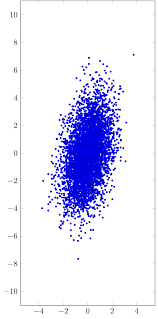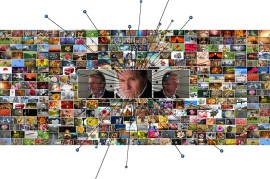- Fecha(s): 26/04/2021
- Lugar: Seminarios online CIO: http://cio.edu.umh.es/seminariosonline/
- Ponente: Cristina Polo Fernández (Universidad de Extremadura)

La medición de la eficiencia en los diversos ámbitos de la economía pública ha suscitado gran interés durante las últimas décadas. Las técnicas más utilizadas en la literatura para estimar el desempeño de las unidades productivas han sido claramente los modelos de frontera no paramétricos tales como el DEA, el FDH o, más recientemente, sus…
- Fecha(s): 24/03/2021
- Lugar: Seminarios online CIO: http://cio.edu.umh.es/seminariosonline/
- Ponente: Jose Manuel Cordero, Universidad de Extremadura

El propósito del seminario es dar a conocer una nueva línea de investigación dentro de la literatura sobre el bienestar subjetivo que consiste en la estimación de medidas de «eficiencia de la felicidad»; (o déficit de felicidad) utilizando técnicas de frontera. Este enfoque innovador ha sido adoptado en algunos estudios recientes que consideran a los…
- Fecha(s): 15/03/2021
- Lugar: Seminarios online CIO: http://cio.edu.umh.es/seminariosonline/
- Ponente: Mikel Sesma

In the field of Information Fusion, and, more particularly, data aggregation, the process of aggregation deals with the problem of finding a single number that is able to represent an input of n numbers. In this framework, there is a trend towards relaxing the monotonicity conditions that are often required so that a function can…
- Fecha(s): 01/03/2021
- Lugar: Centro de Investigación Operativa-UMH: http://cio.edu.umh.es/seminariosonline/
- Ponente: Domingo Morales, Centro de Investigación Operativa, UMH

La charla introduce predictores óptimos empíricos de parámetros bivariados de área pequeña, como razones de sumas o sumas de razones, asumiendo que el vector objetivo a nivel de unidad sigue un modelo de regresión de errores anidados bivariados. Los correspondientes errores cuadráticos medios se estiman mediante bootstrap paramétrico. Varios experimentos de simulación estudian empíricamente el…
- Fecha(s): 23/02/2021
- Lugar: Seminarios online CIO: http://cio.edu.umh.es/seminariosonline/
- Ponente: Jordi Pons i Puig (Dolby Laboratories) : https://github.com/jordipons/musicnn

A brief review of the state-of-the-art in music informatics research and deep learning reveals that such models achieved competitive results for several music-related tasks. In this talk I will provide insights in which deep learning architectures are (according to our experience) performing the best for audio classification. To this end, I will first introduce a…
- Fecha(s): 08/02/2021
- Lugar: Seminarios online CIO: http://cio.edu.umh.es/seminariosonline/
- Ponente: Magdalena Kapelko (Wroclaw University of Economics and Business in Poland)

One of themajor challenges in the research on corporate social responsibility (CSR) isthe aggregation of the CSR metrics into overall measures of CSR practices byfirms. The paper computes composite indicators of CSR from an efficiencyperspective using data envelopmentanalysis (DEA) for a sample of international food and beveragemanufacturing firms over the period 2011-2018. The study’s contributions…
- Fecha(s): 07/12/2020
- Lugar: Seminarios online CIO: meet.google.com/tiy-qjcj-wfo
- Ponente: Dolores Romero Morales, Copenhagen Business School, Denmark

There is a growing literature on enhancing the interpretability of Machine Learning methods involved in Data Driven Decision Making. Interpretability is desirable for non-experts; it is required by regulators for models aiding, for instance, credit scoring; and since 2018 the European Union has extended this requirement by imposing the so-calledright-to-explanation in algorithmic decision making. Mathematical…
- Fecha(s): 09/11/2020
- Lugar: Seminarios online CIO: meet.google.com/tiy-qjcj-wfo
- Ponente: Laureano F. Escudero, Universidad Rey Juan Carlos, Móstoles (Madrid)

Very frequently, mainly in dynamic problems,some data is uncertain at the decision-making time, although some information is already available. The mathematical optimization models under uncertainty, so-named stochastic optimization ones structure the uncertainty in a set of representative scenarios. The stochastic Risk Neutral (RN) models aim to obtaining a feasible solution for the scenario-based constraint system…
- Fecha(s): 19/10/2020
- Lugar: SEMINARIOS ONLINE CIO-UMH: meet.google.com/jre-fksk-jqw
- Ponente: Dae-Jin Lee (Centro Vasco de Matemática Aplicada, BCAM)

En esta charla se introducirá un campo emergente como es la ciencia de datos en el deporte y su creciente relevancia en el rendimiento deportivo, la prevención de lesiones o el análisis técnico-táctico en deportes de equipo. Se plantearán una serie de cuestiones importantes relacionadas con esta nueva profesión y la ciencia detrás de la…
- Fecha(s): 13/10/2020
- Lugar: SEMINARIOS ONLINE CIO-UMH: meet.google.com/nmp-coyi-jva
- Ponente: Virgilio Gómez Rubio (Universidad de Castilla-La Mancha)

La pandemia de la COVID-19 ha puesto de manifiesto la necesidad de contar con sistemas de información epidemiológicos robustos que puedan ayudar en el análisis de datos para la toma de decisiones. Además, de almacenar y gestionar la información, un buen sistema de información epidemiológico debe ser capaz de explotar esa información para realizar análisis…











